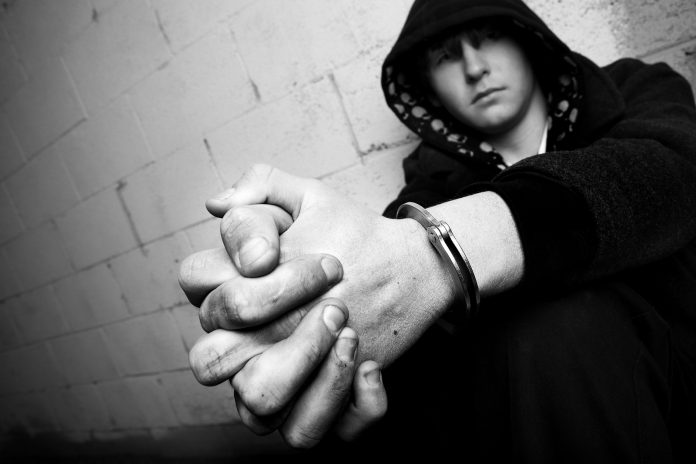This article is written by Srishti Sinha, a student at the Institute of Law, Nirma University, Ahmedabad. This article deals with the concept of crime and the connection between morality and criminal law.
Table of Contents
Introduction
Law and morality are two normative systems that manage and regulate conduct in a human community to promote peaceful and successful inter-subjectivity among persons who acknowledge one another as right-bearers. Both concepts are based on the principle of individual autonomy and equal respect for all people. They have a mutually beneficial connection. It is to be noted that law and morality are difficult to grasp. It is important to note that the concepts of law and justice cannot be grasped and expressed in a few lines. These concepts are so broad that words alone are unable to describe them. Many jurists throughout history, from the ancient Greeks to the contemporary and even postmodern eras, have sought but failed to define these notions. One of the explanations might be because the origins of these ideas are buried deep inside the human brain, which is very unpredictable and adaptable.
Meaning of morality
Morality is a collection of principles that enable people to live together in communities. It’s what cultures deem “correct” and “acceptable.” Acting morally sometimes necessitates putting one’s short-term interests aside to serve society. Individuals who violate these principles may be deemed immoral. There appears to be little reason to believe that a single definition of morality will apply to all moral debates. One explanation for this is because the term “morality” appears to be used in two broad senses: descriptive and normative. More specifically, the term “morality” can be applied in two ways:
- Descriptively, to describe specific rules of conduct promulgated by a community or a group (such as a church), or adopted by an individual for their actions,
- Normatively, to allude to a rule of conduct that, under certain circumstances, would be proposed by all reasonable individuals.
When anthropologists write on the morality of the civilizations they study, they employ the descriptive form of the word morality while anyone who fulfils specific intellectual and volitional requirements, usually always including the condition of being rational, accepts the normative version of morality.
Most morals aren’t set in stone. They are prone to shift and change throughout time. Over time, opinions on whether some practices are moral, such as pre-marital sex, same-sex partnerships, and cannabis use, have evolved. While the majority of the public formerly considered these actions to be “bad,” the great majority today considers them to be “appropriate.” Another example is that contraception is deemed unethical in various cultures, faiths, and locations. Some individuals in other areas of the globe believe that contraception is moral since it prevents unintended pregnancies, manages the population, and lowers the danger of STDs.
The connection between law and morality
Both laws and morals are intended to control communal conduct and allow people to live in peace. Both are based on the idea that everyone should have autonomy and treat one another with respect. But since the resurgence of jurisprudence as a scientific discipline, the relationship between law and morality has been hotly debated, the issue has yet to be resolved, and may never be. The common understanding of the relationship between law and morality is that the law exists in some manner to promote morality, to protect the conditions that allow men to live moral lives, and then to enable them to live sober and productive lives. To clear these confusions, let us look at some of the major points which show the connection and relationship between law and morality.
A state’s enactment is referred to as a law. Physical coercion is used to support it. Its violation is punished by law. It embodies the state’s intent and serves its purpose. The political, social, and economic ties in the society are reflected in a country’s laws. It establishes people’s rights and responsibilities to one another and the state. The government keeps its promises to the people by enforcing them through legislation. It is a reflection of society’s social necessity. Laws are usually founded on societal moral ideals. Both govern an individual’s behaviour in society. They have a lot of impact on each other. To be effective, laws must reflect the people’s moral values. Good laws, on the other hand, can help to arouse people’s moral consciences and establish and sustain situations that foster moral growth. Examples of this type of legislation are laws prohibiting the use of tobacco and encouraging the expansion of basic education.
In reality, morality and politics are inextricably linked. The development of general welfare and man’s moral perfection is the ultimate goal of a state. It is the responsibility of the state to enact legislation that will raise the moral standard of the people. As a result, a state’s laws adhere to the dominant moral norm. Law is more than just the sovereign’s order; it also symbolizes the notion of good and evil based on popular morality. Furthermore, obedience to the law is contingent on the active support of the people’s moral emotions. Also, we are aware of the fact that laws that aren’t backed by the public’s moral conscience are of no use just like the laws for the prohibition on the use of tobacco products. Since there is no public moral conscience and no morality on an individual’s part, therefore, such laws are dead, i.e., they are only accepted in the books and not in reality.
What criminal wrong means?
A criminal wrong is something when the harm is more serious and affects the general public (including the individual victim). The state can take direct action against the wrongdoer. In this case, public denunciation or reparation provisions are ineffectual. Wrongs such as dacoity, murder, abduction, sedition, treason, and the like disrupt the fabric of law and order, putting the state’s survival in jeopardy or causing widespread fear. As a result, the state emphasises the importance of punishing the wrongdoer rather than focusing on the issue of the wrongdoer paying recompense to the injured party. This group of wrongs is known as “public wrongs” or “crimes”, for which the state initiates criminal procedures and punishes the perpetrator. The corpus of law that deals with such crimes are known as criminal law. It prohibits behaviour that is seen to be threatening, damaging, or otherwise dangerous to the property, health, safety, or moral welfare of others, including oneself. The majority of criminal law is formed through legislation, which means that it is passed by a legislative body.
The connection between criminal law and morality
The goal of criminal law is to “decrease criminal activity to the point that society can absorb the negative consequences of crime without jeopardizing its stability. To put it another way, the purpose of the criminal law is to guarantee that socially destructive activities do as little harm as possible to society.” This is not to reject the a posteriori link between morals and crimes, in the sense that it may be immoral to perform an act that is proclaimed to be criminal simply because one is morally obligated to follow society’s positive laws. Though morality and legality can be differentiated, they are not completely separate entities. They are linked by the fact that they both seek to maintain social order. There is a set of wrongs that the law and morals react to with widespread hostility. Murder, rape, arson, robbery, theft, and other criminal wrongs are among them. In this case, the law and morality firmly reinforce and enhance each other. Everything that is thought to increase the moral culpability of a particular crime is considered a justification to increase the harshness of the punishment meted out to it.
How morality helps in preventing crime?
The goal of the law is to provide order to society (in all units of society). The law aims to establish a working environment that is fair to all members of society. On the other side, there’s the nebulous idea of morality, which is a search for a standard or a component of a normative system. Morals are a set of societal measuring standards that serve as guidelines for human behaviour. Although there is no logic to these principles, they nevertheless hold sway in our culture. This is a completely private practice in which the law has no role to play. Morality might have a bad influence on society or one that has a positive impact on society. As both are normative and institutionalized by nature, law and morality are normative systems in our society. The sole distinction between law and morality is that the former is coercive by nature, while the latter is not. Coercion is used to enforce the law, and the continual application of the law in a community leads to the internalization of the law in the human spirit.
The term “morality” refers to the ideals that guide our actions. Societies will not be able to thrive for long if these principles are not followed. Everyone follows some sort of moral code to ensure fairness and harmony among individuals; to help us become better people to have a better community; and to keep us in good standing with the power that created us. With these moral codes, every offender will avoid performing the task of crime to some extent. To support this argument, there is a good example of a study which was conducted in a community in Peterborough for almost 10 years. Around 700 people were thoroughly examined. These 700 people are self-reported that they have committed more than thousands of crimes during this examination period. But it was also examined that among these 700 people, more than a third of these people have committed no crime or little crime. According to the study, one of the main reasons why some people refrain from committing crimes is that their morality stops them from ever seeing it as a viable option in the first place. So, following this example, it can be seen that the morality of a person will stop them from committing crimes to some extent and if every person makes some sort of moral code then their morality will surely stop them from committing a crime.
Conclusion
There is no hard jacket or universal formula that can decide whether or not legislation should be employed to impose morality. It can only be inferred that the amount of moral standard enforcement varies from situation to situation. In instances when morality has a positive and beneficial influence on society, the law might be utilised to enforce such positive morality, if necessary. On the other hand, any morality that harms society in any way should never be enforced through the use of legislation.
Law is a function of culture – it exists in all civilizations — which means that it is a function of morals or values. Law without morals is cultural suicide, which is exactly what people who want to separate the two will generate, whether they like it or not. We must do our best to nurture the smartest individuals, purest intentions, and finest acts that we are capable of in our era of more complicated moral challenges, where technical improvements outpace moral growth and comprehension. We need to make far greater use of the law as moral enablers and educators.
References
- https://abyssinialaw.com/study-on-line/item/426-criminal-law-private-law-and-morality-distinguished
- https://www.jstor.org/stable/825323
- http://www.legalservicesindia.com/article/1842/Law-and-Morality.html
LawSikho has created a telegram group for exchanging legal knowledge, referrals, and various opportunities. You can click on this link and join:
 Serato DJ Crack 2025Serato DJ PRO Crack
Serato DJ Crack 2025Serato DJ PRO Crack











 Allow notifications
Allow notifications


